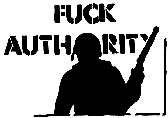In Our Time audio on Anarchism
Hello,
There's always discussion after a programme about what was not said. This was the fiercest and most intense discussion that there has ever been! Perhaps it's something in the subject itself. All sorts of things came up. John Keane drew my attention to a quotation from George Woodcock, the Canadian writer, that "anarchism is aristocracy universalised". Peter Marshall said that that referred not so much to aristocracy itself, but to a view of the innate nobility and the goodness inside human beings.
I think it was John Keane again who noticed the conjunction of aristocrats, craft workers and intellectuals who favoured anarchism, all of whom, he said, needed to stand against being "bossed around". Peter Marshall observed that a great number of British intellectuals had been drawn to Marxism in the last century or so. Not only Oscar Wilde, one of whose observations was that Marxism accommodated eccentricity, but Aldous Huxley, Herbert Reed, Bertrand Russell and many others.
The notion of anarchism in the community today was not given the amount of time we would have liked. Afterwards it was pointed out that the idea of running things in a pyramid fashion was rapidly going out of fashion and the horizontal/anarchist method was being employed not only by Japanese corporations, but by movements such as the Global Justice Movement which were essentially aiming towards a condition of leaderlessness. When it was brought up that Al Qaeda might be called an anarchist movement in that sense, this was immediately slapped down because of the strong and charismatic leader in the Al Qaeda movement, around whom the ideas and the people themselves gathered.
As always, a great deal was left out. Perhaps two or three quotations will do. First of all from John Keane to reiterate where the word anarchism came from and how it grew initially:
"Anarchism is a term that entered the English language in the 17th century. It was used in a derogatory and abusive fashion by royalists in favour of the restoration against their opponents. An anarchist was thought to be someone who endorsed disorder, violence and chaos. It also implied the person was "godless" (the word atheist" had not yet been invented), a characteristic that was deemed both threatening and dissident. The actual term "anarchism" derives from the Greek word, "anarchos", meaning "without government" or "without rulers". The meaning of course in translation is exactly the same.
The connotations of anarchism were almost entirely negative until the 18th century when a semantic rupture occurred and the word began to be associated with a legitimate political movement during the time of the French Revolution. There are clues to this change in meaning if we consider, for example, the presence of Anacharsis Clootz (1755–94) at the meetings of the Convention, the revolutionary French assembly, where he was an ardent supporter of the liberation of Europe in the name of the ideals of the Revolution. Clootz was only one of two people invited to take part in the Convention (Thomas Paine, the radical propagandist and voice of the common man, was the other) who were not French. Their political clout, ideals and popularity meant they were treated as honorary citizens. Clootz had changed his name to reflect his ideals (he was originally christened John Baptiste). He was fanatically devoted to humanitarian ideals and despised royalty and absolutism. Reportedly a wild figure, wild in dress and wild in speech, he could hold an audience in the palm of his hand. Clootz was also strongly in favour of the de-christianisation of France and it was this "godlessness" which later brought about his execution at the hands of the Jacobins during the Terror."
Secondly, we did not mention Malatesta and Emma Goldman. In his notes, Peter Marshall had this to say about both of them:
"The Italian anarcho-communist, Errico Malatesta (1853 – 1932), shared Kropotkin's belief that the Anarchist revolution would occur soon. He also believed that violence would form a necessary part of the emancipation of the working classes."
Peter Marshall describes Malatesta as calling for "Anarchism without adjectives", and by this he means a kind of pure Anarchism – Malatesta supported propaganda by the deed as opposed to propaganda by the word. He believed in insurrection and encouraged peasants to rebel and occupy the factories.
Malatesta's voice is echoed in the philosophies of Emma Goldman (1869-1940), who also believed in direct and violent action in order to effect revolutionary change. Goldman played a pivotal role in the development of Anarchist political philosophy in the United States and Europe in the first half of the twentieth century. She emigrated to the United States at seventeen and was later deported to Russia, where she witnessed the results of the Russian Revolution firsthand. For some time she was considered the most dangerous woman in America for saying that most men seemed to want women to simply shut their mouths and open their wombs. Goldman was also a joyful Anarchist. She declared that: "If I can't dance then it's not my revolution!" Her lively embrace of Anarchist principles is an important one and represents a reaction against the grim worker spirit of some of the hard-line sectarian groups.
Marshall reflects that the majority of the towering figures in the Anarchist movement come from the 19th century, although Anarchism still had its voice in the 20th and 21st centuries. An anarcho-syndicalist sympathiser, Noam Chomsky, in his For Reasons of State (1973), wrote how the problem of "freeing man from the curse of economic exploitation and political and social enslavement" remains the problem of our time. As long as this is so, the doctrines and the revolutionary practice of libertarian socialism will serve as an inspiration and guide.
Most importantly of all, Peter Marshall pointed out that we did not mention Gandhi who called for a decentralised society based on village council and he viewed anarchy as the most enlightened form of society. His influence may prove to be the strongest yet.
Nor did we mention Tolstoy who described himself as a Christian anarchist … nor did we mention … the conversation went on and perhaps we ought to return to it as soon as we can.
Best wishes
Melvyn Bragg
Labels: Anarchism




3 Comments:
Interesting piece - i am going to listen to it on the radio now. hope you are well and the family:)
By Anonymous, At
8:48 pm
Anonymous, At
8:48 pm
Hey sokari--Thanks for this. Being an eco-warrior is helping somewhat. I'll be working on a piece about the political and social implications of power-generation soon. You might be interested in it. Are you still coimng down to CT next year?
By Anonymous, At
9:39 am
Anonymous, At
9:39 am
Interesting! Thanks!
I think I may be an anarchist at heart, but I think social structures, uh, sorry, relationships, not structures, social interaction, society, needs to develop significantly before anarchy is practical... lets see what we can contribute.
Of course, I think Jesus might have been an anarchist as well... :-D
By Hugo, At
5:54 pm
Hugo, At
5:54 pm
Post a Comment
Subscribe to Post Comments [Atom]
<< Home